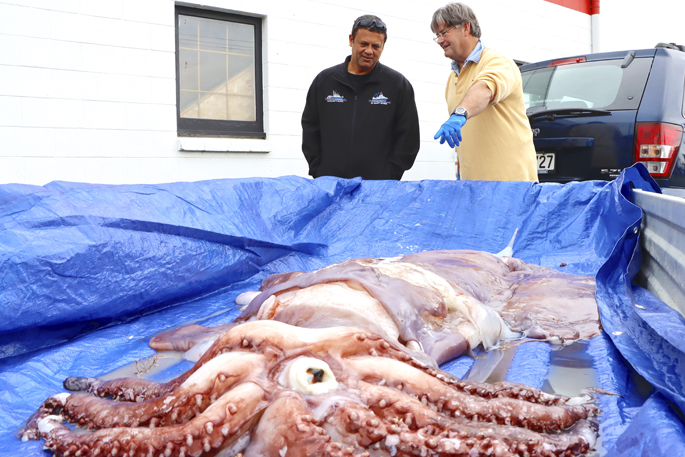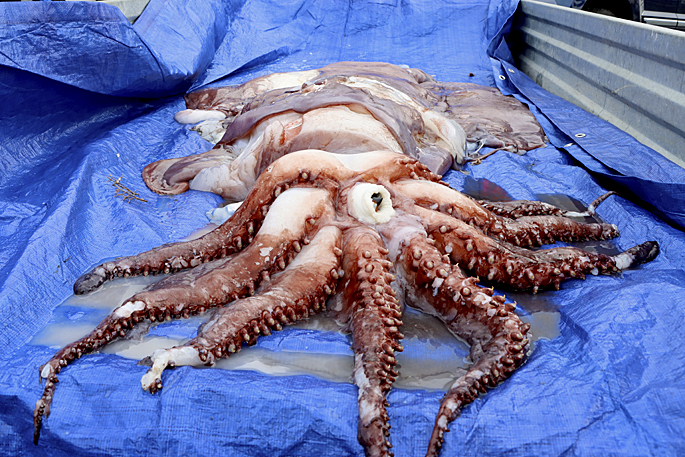What was thought to be a giant squid caught off near Whakaari/White Island, has turned out to be something much rarer.
When the crew of the Margaret Philippa hauled in their fishing nets back in June, they weren't expecting to see a huge jelly mass amongst their catch of orange roughy.
Skipper Roger Rawlison says it wasn't until it fell out of the net that the crew realised what is was.
Roger contacted Chris Battershill, a Professor of Marine Science at the University of Waikato in Tauranga, handed over the unusual catch on June 19.
Upon further investigations, what was thought to be a giant squid has been identified large Taningia or octopus about 1.5m long.
"A Taningia or octopus is still one of the largest squid species we've identified,” says Auckland Museum Curator Marine Invertebrates, Wilma Blom.
Wilma will lead a research team, along with Associate Professor, School of Science at Auckland University of Technology, Kat Bolstad and Massey University Marine Biologist, Emma Betty, in dissecting the massive 100kg gravid female in a rare scientific opportunity.
It is being transported to Massey University Albany's post-mortem lab for the squid dissection on Thursday.
'This animal has amazing photophores (bioluminescent light-producing organs) on two of the arms, as well as about 200 cat-like claws,” says Wilma.
The squid was already dead when it was caught and provides an important opportunity to study rare or lesser known species of squid in the waters around Aotearoa.
"Collating this type of data helps to inform improvements in our interactions with these species and is invaluable to understanding their ecology,” says Kat Bolstad.
This specimen has been donated to Auckland Museum by Professor Chris Battershill of Waikato University, for scientific research.
The Waikato team is interested in biopsy samples to examine ecotoxicity of the waters around Whakaari after last year's eruption.
 Chris Battershill, right, with Roger Rawlinson who caught the giant squid.
Chris Battershill, right, with Roger Rawlinson who caught the giant squid.
"We know toxic elements like mercury, arsenic and cadmium are released in geothermal emissions and there were fish kills directly after the eruptions,” says Chris Battershill.
'While it was an incredibly tragic event, the area around the island has become a unique 'living lab' and this rare specimen will help us understand a bit more about how far through the food chain everything is going."



1 comment
Not a pointless death.
Posted on 22-07-2020 14:05 | By morepork
While it is sad that this octopus was pregnant when found dead, the wealth of information that it can provide, makes it very valuable. The octopus could never have imagined for one minute the value we would get from its death and the positive effect this can have for all the sea life in the area.
Leave a Comment
You must be logged in to make a comment.